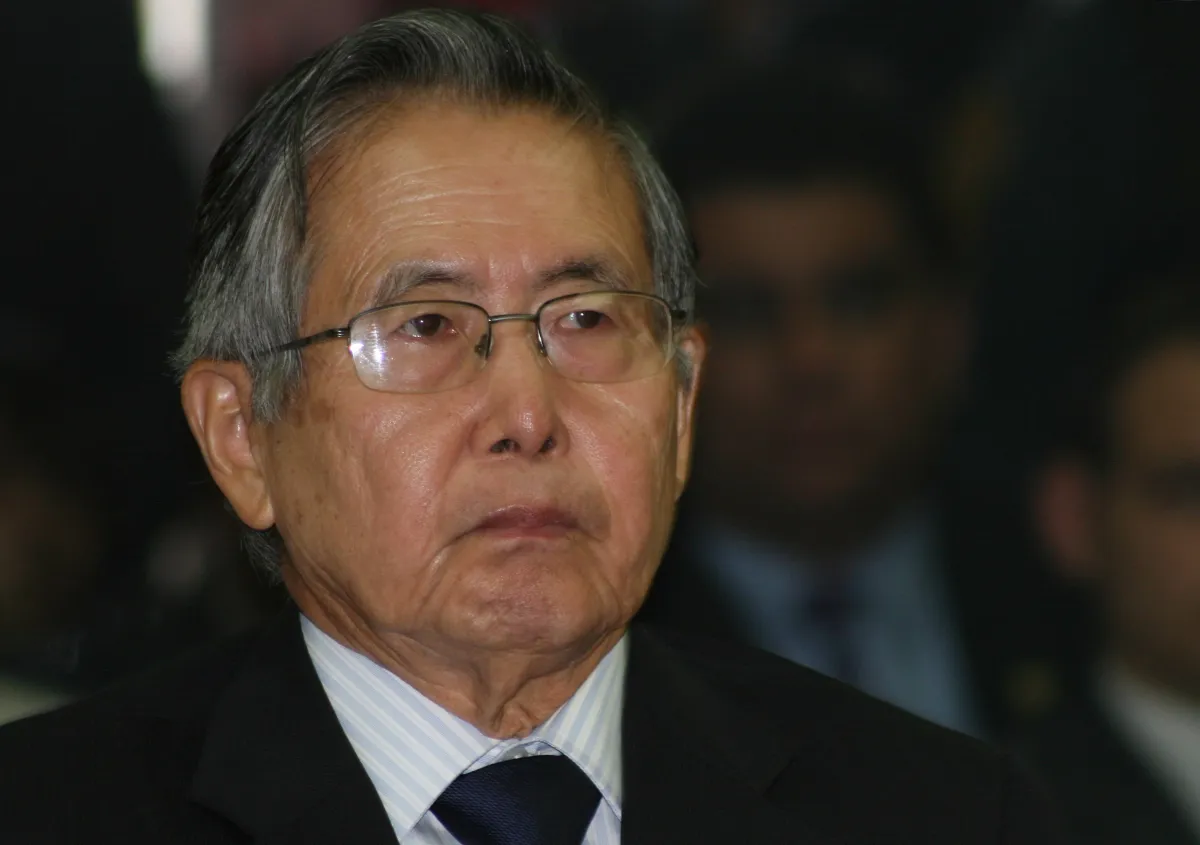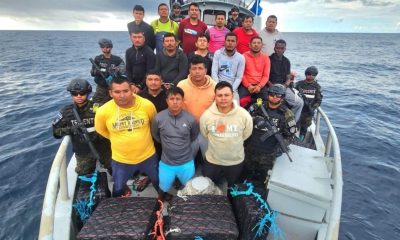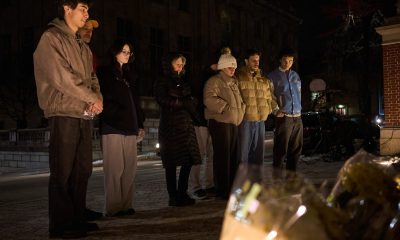International
UN: forced sterilizations in Peru in the 90s would constitute a crime against humanity

The policy of forced sterilizations in Peru during the government of Alberto Fujimori (1990-2000), of which more than 300,000 women were victims, was a form of violence directed “particularly against indigenous, rural and disadvantaged women” that could be considered a crime against humanity, a UN committee of experts ruled on Wednesday.
“Generalized or systematic forced sterilization could constitute a crime against humanity according to the Rome statute,” said the Committee for the Elimination of Discrimination against Women, which expressed its concern about the law enacted by Peru that prevents the prosecution of this type of serious crimes if they were committed before 2002.
The conclusion of the group of 23 experts (22 women and one man) was adopted after reviewing a complaint filed by five victims forcibly sterilized between 1996 and 1997, as part of the birth policies developed by the Peruvian Government, of which 25,000 men were also victims.
Sterilizations in Peru without the consent of the victims
“The victims described a consistent pattern of coercion, pressure or deception to undergo sterilizations in clinics without adequate infrastructure or trained personnel,” said committee member Leticia Bonifaz.
He added that the procedures were carried out without the consent of the victims, some of them unable to fully understand the nature of the operations.
The committee stressed that Peru did not comply with its obligation to properly investigate these violations or to adequately compensate the victims, so it made an urgent appeal to the State to accelerate or expand its investigations, providing financial compensation and psychological support.
Testimonies of those affected
The committee’s decision collected testimonies such as that of a victim from the department of Huánuco, in the north center of the country, who was arrested in the street by medical practitioners in 1996, subsequently sedated and when she woke up she was told that she was “cured” because she could no longer have children.
Immediately after the intervention she had to walk home for two hours, without any postoperative care, and her husband abandoned her when she discovered that the sterilization, the document pointed out, putting this case as an example of the serious consequences on physical and mental health that those campaigns had.
The case was presented in 2020 to the United Nations committee, in charge of ensuring compliance with the Convention on the Elimination of All Forms of Discrimination against Women, ratified by Peru in 2001.
Violent campaign against women
Although there were also male victims of sterilizations, the committee interpreted that this campaign was especially violent with women, due to the different nature of the interventions and the associated surgical risks.
“They were part of a systematic and widespread attack against rural women of peasant or indigenous origin, and the policy resulted in the annulment and replacement of their reproductive autonomy,” Bonifaz denounced.
International
Trump moves to reclassify marijuana as less dangerous substance

Former U.S. President Donald Trump signed an executive order on Thursday to reclassify marijuana as a less dangerous addictive substance, a move aimed at encouraging medical research without immediately opening the door to federal-level decriminalization.
Trump said that “people were begging” him to make the decision, particularly individuals suffering from chronic pain. He stressed, however, that the measure “is not at all a decriminalization” of marijuana for non-medical use.
“I’ve always told my children: don’t use drugs, don’t drink, don’t smoke,” Trump added. He is a well-known teetotaler.
A senior government official described the decision as “common sense” during a briefing with reporters, noting that marijuana and CBD-based products — a compound derived from cannabis known for its relaxing properties — are already widely used in the United States by patients dealing with chronic pain.
Most U.S. states currently allow the use of cannabis for medical purposes, and more than 20 states, along with the nation’s capital, Washington, D.C., have also legalized recreational use.
International
Shakira’s El Salvador concerts sell out in hours, fans demand more dates

The sell-out of all three announced Shakira concerts in El Salvador in less than 24 hours has sparked a collective call for additional dates, highlighting an overwhelming demand that transcends borders and positions the country as a cultural hub in Central America.
Ticket sales for Shakira’s Central American residency confirmed the artist’s massive impact across the region. The three shows scheduled for February 12, 14, and 15 in El Salvador sold out in under 24 hours, triggering an immediate public response from fans who were unable to secure tickets and are now urging promoters to open new dates, according to an official statement from promoters Two Shows and Fenix Entertainment.
Even before ticket sales officially opened, thousands of people joined virtual queues that exceeded the usual capacity of the country’s ticketing platforms. Despite logging in early and waiting for hours, many users were unable to complete their purchases and were ultimately left without tickets, Two Shows reported.
The unprecedented demand was widely documented through screenshots, testimonials, and social media posts, showing slow-moving waiting lists, ticketing websites overwhelmed by traffic, and purchase processes that failed to go through despite users following all required steps within the designated timeframes.
According to the organizers, demand to see Shakira perform in El Salvador remains strong even after the sell-out. Meanwhile, hotels have reported booking inquiries beyond the announced concert dates, pointing to a larger-than-expected tourism influx tied to the event.
International
Rubio rules out 2028 presidential bid if Vance runs

U.S. Secretary of State Marco Rubio said he would not seek the presidency in 2028 if current Vice President JD Vancedecides to run as the Republican nominee to succeed President Donald Trump.
“If JD Vance runs for president, he will be our candidate, and I will be one of the first people to support him,” Rubio said in an interview with Vanity Fair, in which he appeared alongside other senior members of the presidential cabinet.
Rubio, 54, and Vance, 41, are widely viewed as two of the leading Republican figures who could headline the party’s ticket in the 2028 election. Under the U.S. Constitution, Trump is barred from seeking another term after completing two presidential mandates.
In a lighthearted moment during the interview, Vance jokingly offered photographers $1,000 if they managed to make him look better than Rubio in the photos. Both leaders have received public backing from Trump, who last October floated the idea of a joint ticket featuring Rubio and Vance, without clarifying who would lead it.
“I think that if they ever teamed up, they would be unstoppable. I don’t think anyone would run against us,” Trump said at the time.
White House Chief of Staff Susie Wiles, who also took part in the interview, confirmed that Trump does not intend to violate the 22nd Amendment, which prohibits a third presidential term, though she acknowledged that the president is “having fun” with speculation about a possible return to office.
Rubio, the son of Cuban immigrants, served as a Republican senator from 2010 to 2025. He sought the party’s presidential nomination in 2016 but was defeated by Trump after a bruising primary contest. His name was floated as a potential vice presidential pick in 2024, but Vance ultimately secured the spot. After taking office, Trump appointed Rubio as secretary of state, making him the first Latino to hold the position.
-

 International5 days ago
International5 days agoPolice investigate deaths of Rob Reiner and wife as apparent homicide
-

 Central America5 days ago
Central America5 days agoOAS urges swift recount in Honduras as election results remain uncertain
-

 Central America4 days ago
Central America4 days agoEl Salvador ranks among top countries in the Americas in fight against organized crime
-

 Central America4 days ago
Central America4 days agoBukele says AI partnership with xAI will transform public education in El Salvador
-

 International3 days ago
International3 days agoRubio rules out 2028 presidential bid if Vance runs
-

 Central America3 days ago
Central America3 days agoArrests and clashes in Tegucigalpa as vote count continues after Honduras election
-

 International3 days ago
International3 days agoAuthorities search for armed and dangerous suspect in fatal Brown University attack
-

 International14 hours ago
International14 hours agoShakira’s El Salvador concerts sell out in hours, fans demand more dates
-

 International14 hours ago
International14 hours agoTrump moves to reclassify marijuana as less dangerous substance


























